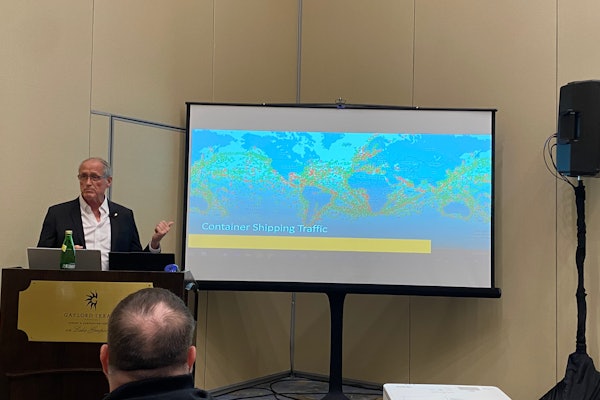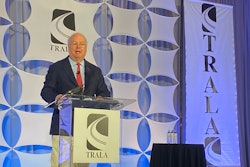
Building and maintaining an educated sales force is especially important as the sale of heavy-duty trailers has been trending downward. Trailer orders have been on the decline for months, according to various sources, with the market hitting a 10-year low in June. It’s a sobering trend, to be sure, and one that makes every interaction with a current or potential customer that much more important.
It is common for management to get “so caught up in sales activity, they tend to forget about training and keeping current with new technology and advancements,” says Allen Phibbs, director of industry operations, KEA Advisors.
And, losing sight of the details can be costly for a trailer dealership — especially when it comes to larger customers.
“Fleet accounts are hard to break into because someone is already selling to them, so you have to be really good at what you do. If you already have the account, you have to be on your toes because if you lose one of those accounts, it takes a big bite out of your company,” says Ron Slee, president of consultancy R.J. Slee & Associates, and managing director of training and education firm Learning Without Scars.
If your sales team isn’t getting constant and consistent training, leadership and well-structured goals, you’re not getting the most from it and the results are underdeveloped sales representatives and potential lost business for the dealership.
Internal training
One of the most logical places to provide training for sales reps on a regular basis is in-house.
Bill Zeamer, vice president of sales, Utility Keystone Trailer Sales, says management at his business holds regular meetings to not just review sales numbers, but to provide training and share information amongst the team.
For example, Utility Keystone holds 30-minute sales meetings three times a month to discuss current events, address sales issues and opportunities and to review sales numbers. Also, the dealership subscribes to several trade publications and employees “share relevant information with the team so they’re constantly learning about the industry,” he says.
Throughout the year, a sales skills book is assigned to the reps and, as part of the dealership’s 90-minute monthly meeting, each sales rep highlights his takeaways and explains how he plans to apply them. The dealership also conducts semi-annual, one-on-one meetings to review performance and discuss how to improve their sales.
For sales reps who have been with the dealership less than three years, there is a biweekly prospecting and strategy meeting, Zeamer says. Prospecting includes identifying potential customers within a two-hour radius of the dealership and learning how to prequalify them by determining whether they have the capacity to buy at least 10 trailers per year.
Reps are taught how to research and perform a needs analysis on potential clients and, after meeting with those clients, how to conduct a business analysis based on how prospects use their trailers and how long they keep them, among other information.

At Country Supply, for employees new to trailer sales, training starts by working in accounts payable or parts. Only after working in one of those departments for at least 18 months can an employee become a sales rep, says President Holly Kamp.
Kamp says the process helps employees get to know the customers, learn about trailer parts and become fluent in the trucking and trailer vernacular.
“A salesperson who knows all aspects of what they are selling is more beneficial to the customer,” she says. “The more specialized the trailer, the more training is required.”
Kamp says an essential aspect of training is learning about the business of a current or potential customer.
“This is very important. For example, we like to know how much weight they want to carry and what parts of the country they will be hauling their loads,” Kamp says. Laws can differ by state and in Canada, and customers want to be legal wherever their trailers go, she adds.
Like Zeamer and Kamp, Slee stresses the importance of researching customers in addition to being knowledgeable about trailers. “I don’t believe the trailer industry does [enough] on training salesmen for the job in the field,” he says.
Slee says sales reps must know about the relationship between the dealership and its customers, such as what they buy from the dealership, how long they have been buying, what they don’t buy and if they’re not buying from them, who are they buying from?
Once the research is complete, “sales reps need to set up objectives for every single customer. Now I have goals. When I go out the door with my customer list, I know what I am going to talk about and why,” he says. “All of that is fundamental to sales and [few are] teaching anybody this.”
Furthermore, he adds many dealerships need to do more to help employees become better at sales. “[They] don’t help them because the sales managers don’t travel with them and mentor like the old days.”
Slee also would like to see sales reps taking classes and reading sales-related books — making an investment in their personal growth on a continual basis because skills erode. Without constant training, “the person you hired who was good in 2010 isn’t as good in 2019,” he says.
Phibbs agrees training should be ongoing to ensure the sales staff is up to date on the latest technology and trailer applications. He is another proponent of keeping current through trade publications by assigning sales reps a trade publication and then have them report to the group what they have learned.
“That way you know they’re learning and it gives them the opportunity to teach others. It’s a way to make every sales meeting a training meeting,” he says. “That’s a really easy way [to stay informed about the industry] but it’s rarely used and I don’t know why.”
Phibbs also suggests a well-structured training plan with clear, measurable expectations.
“It’s going to be completion of courses taken, whether they’re online or in person, number of contacts they’ve made, number of appointments they’ve set, number of equipment showings — all those activities need to happen before you ever sell a piece of equipment. It’s focused on the activities that lead to the sale, not necessarily on the sale itself,” he says.
Phibbs adds, “I’m a believer in having people do what they do best. If dealerships have someone in-house who can be a trainer, they should do it. If they don’t, then certainly that lends itself to outside training.”
Training resources beyond the dealership
Resources to expand trailer sales training and gain more industry and product knowledge beyond a dealership’s lot are ample. For example, KEA Advisors provides business advisory services for training, operations and strategic and transition planning for commercial truck, trailer and heavy equipment dealerships.
Phibbs says KEA also offers a “train the trainer” scenario in which KEA can train a dealership employee who then trains the rest of the employees.
Or, there are companies such as R.J. Slee & Associates, which provides consulting, and Learning Without Scars, which offers highly structured training through online learning programs, instructional videos, virtual classrooms and webinars. Learning Without Scars is in the process of obtaining International Association of Continuing Education and Trainer certification, which means courses taken will be eligible for credit at universities and vocational and technical schools.
And then, of course, is the training and knowledge that can be obtained through OEMs, vendors and trade shows. These plentiful resources won’t come as a surprise to anyone, yet it is important for dealerships to take advantage of as many of these opportunities as they can.
Stoughton believes the best type of training is an interactive experience, says Luke McMaster, vice president of sales, dealer channel.
“We host an annual dealer sales meeting which includes sales and product training, among other topics,” McMaster says. “We bring the sales associates of our dealers to our factories to see how the product is built. This provides them with a comprehensive look at the components and workmanship that goes into each Stoughton trailer.”

To keep sales reps current between major events, Stoughton communicates product changes to its dealers through email blasts, quarterly webinars, product bulletins and in-person sales calls, McMaster says.
“We will go to the manufacturers for training purposes every couple of years,” Kamp says. Country Supply sells Doonan, XL Specialized Trailer, Transcraft, Trail King and Reitnouer Trailers.
“Spending time at the factory is a great way to get to know the product and the people who can help you when you need a solution or a question answered,” she says.
Utility Keystone’s sales reps attend Utility and MAC Trailer factory tours so they can see how the trailers are built. What’s more, every 18 months, Zeamer says the OEMs host a sales meeting and vendor fair where all the preferred vendors have a booth to provide information and training on the various trailer components.
Also, the dealership every year invites its top vendors, such as Bendix, Thermo King and Carrier, to provide training sessions on their product lines.
In addition to OEM and vendor events, the industry calendar is chock-full of trade shows and conferences where sales reps can soak up much industry and product information in just a few days. Kamp says industry events are an important source of training and knowledge about the trailer industry.
“We go to trade shows throughout the year because you can spend quality time with your factory reps and the equipment,” she says.
Zeamer says trade shows are a good way for his sales reps to keep current with the industry, adding he will send them to the Mid-America Trucking Show and International Foodservice Distributors Association events, among others.
“Trade shows are important because all your vendors are there telling you what’s improved, what’s coming out and what has been discontinued,” he says.
Among the bevy of trade shows throughout the year are this month’s North American Trailer Dealers Association Show (NATDA) in St. Louis, and the upcoming National Trailer Dealers Association (NTDA) Annual Convention. The NTDA convention is being held Oct. 9-11, in West Palm Beach, Fla., and will offer educational sessions, workshops, OEM and supplier presentations and several networking events.
NTDA also offers other training resources for dealers, such as free webinars throughout the year, digital learning opportunities through its relationship with Slee’s Learning Without Scars program, online articles and member-posted training videos on NTDA’s website, says Gwendolyn Brown, NTDA president.
“Because video content seems to be sought out more than other forms of learning these days, this is an important offering for our members, and the industry in general, to promote best practices and safety,” Brown says of the online content.
With lower freight volumes leading to a softer trailer market, selling likely isn’t as easy as it was in 2018. Customers are more skittish about capital investments than they have been.
Perhaps now is a good time for dealers to review and strengthen their sales training programs in-house while taking advantage of all the external opportunities available to ensure their sales teams are prepared when customers are ready to buy.










